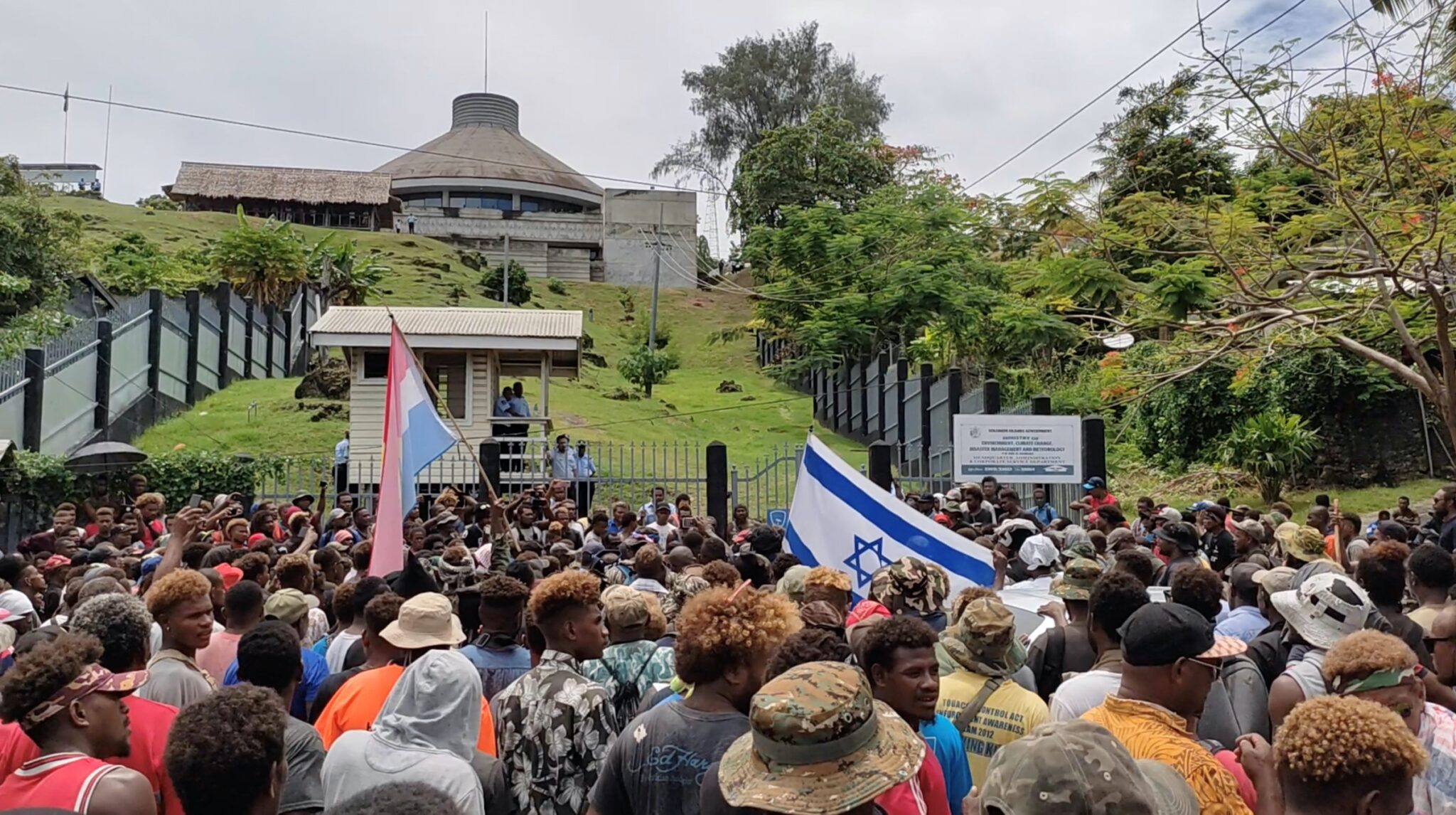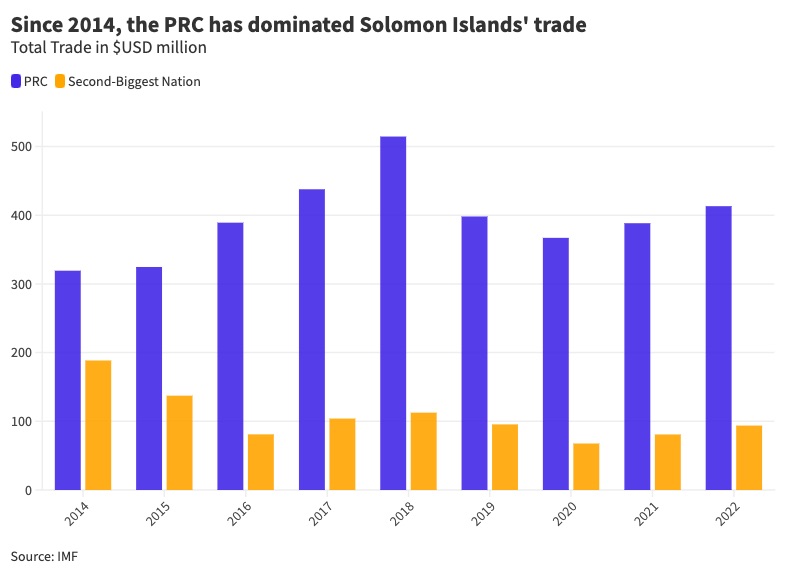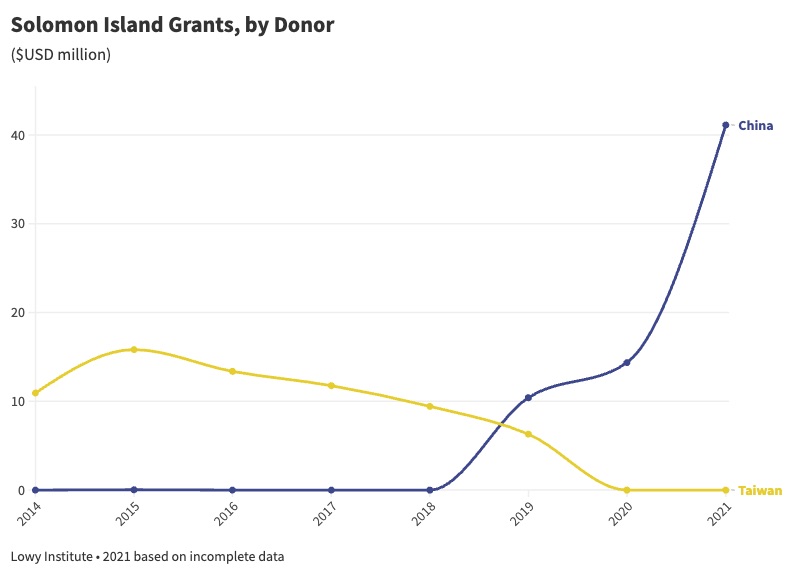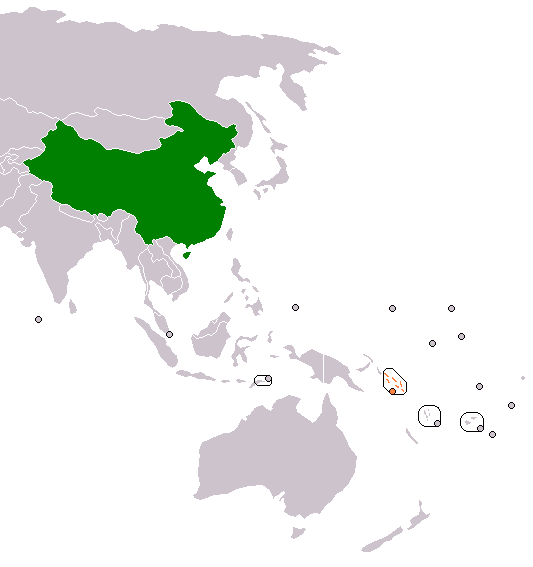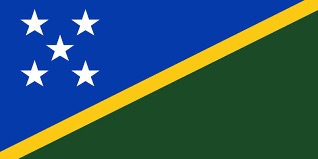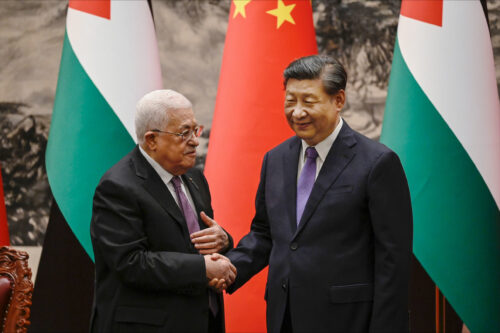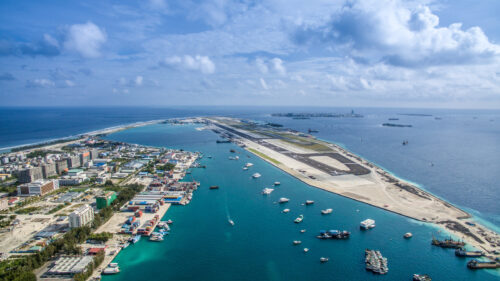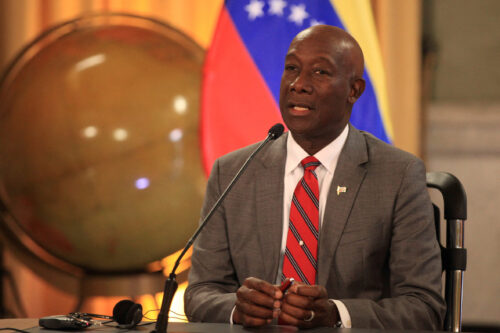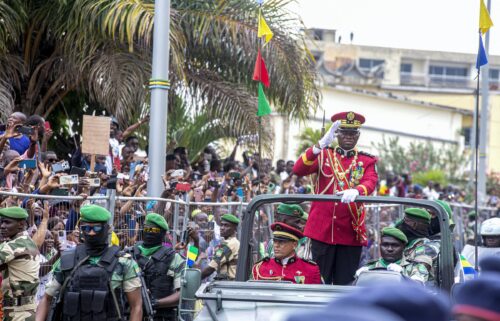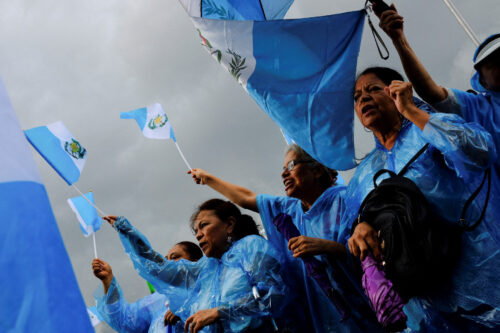Our weekly explainer series, China Ties, looks at China’s relationship with different countries of the world.
More people live in Brooklyn than in Solomon Islands, but nonetheless, the country was Taiwan’s biggest backer in the Pacific — until it switched its formal diplomatic relations to Beijing in 2019, that is.
Now the island chain is in the spotlight again as a source of Western anxiety. There’s concern about what the vague wording of a security deal it signed could allow the P.R.C. to do in the country. There’s concern that P.R.C. logging businesses seem to only take interest in the islands’ deep-water ports, rather than their trees. There’s concern about the motivations behind Prime Minister Manasseh Sogavare delaying this year’s national elections, and concern about a police cooperation deal he signed last month with the P.R.C. — the latter vowing to bolster Solomon Islands’s capacity for law enforcement, already providing basic training for local police. U.S. ships aren’t welcome in the islands’ ports, and Australia is no longer able to stop them from making large deals with Huawei.
But all the concern for what this means for the West has drowned out what’s been going on at ground level.
The diplomatic switch came during a turbulent time for Solomon Islands. Both the P.R.C. and Taiwan were accused of trying to sway the country’s decision by bribing politicians. Meanwhile, Malaita — a powerful anti-government island province with the biggest population — refused all P.R.C. funding, accepted Taiwanese aid during the pandemic, and planned an independence referendum in 2020. A protest by democracy activists from Malaita in 2021 led to riots in Honiara’s Chinatown, leaving three dead.
Taiwan and Solomon Islands had been allies for 30 years — Solomon Islands always using its statement at the annual UN general meeting to call for Taiwan’s reinstatement as a full member. But the P.R.C. has been Solomon Islands’s dominant economic partner for almost a decade, perhaps trying to lay the groundwork for the switch.
It’s a wonder Solomon Islands had no formal diplomatic relations with its largest trading partner for as long as it did.
Taiwanese aid had also been tailing off in the run-up to 2019. It’s nothing compared with the P.R.C. money Solomon Islands (and its MPs) now have access to.
It could have gone with the P.R.C. from the start. After gaining independence from Britain in 1978, Solomon Islands had considered an alliance with the mainland, even sending its minister of foreign affairs to Beijing in 1982. But its leaders plumped for Taiwan one year later, fearful of communism and attracted by Taiwan’s larger stable of diplomatic allies (at the time). The country benefited from Taiwanese aid over the years, like free medical care, access to the Taiwanese job market, and developing electrical generators for local communities.
But the subject had never been fully closed, with some provincial governments keeping loose ties with the P.R.C. since the 1980s. “Sooner or later, when we see our country hasn’t been able to grow out of this [Taiwan’s] relationship, we are at liberty to review our relations,” former prime minister Gordon Darcy Lilo commented in 2019.
Solomon Islands
Founded: July 7, 1978
Population: 700,000
Government: Constitutional Democracy
Capital: Honiara
Largest City: Honiara
Established relations with the P.R.C.: September 21, 2019
The P.R.C.’s presence on the island over the past two decades — a “mad dash,” the New York Times called it — has led to resentment. Reports claim Chinese dominate retail and other businesses in towns and cities, while Solomon Islands is the P.R.C.’s second-biggest source of tropical logs — importing over 2 million cubic meters in the 2010s. It’s likely P.R.C. logging companies flouted local laws, harvested protected species, and did not pay local taxes.
Resentment occasionally turns to violence. An anti-Chinese riot in 2006 burned 90% of Honiara’s Chinatown to the ground. Surprisingly, a P.R.C. government report placed the blame on “low-quality” migrants from Guangdong Province, hungry for success and not afraid to grease government palms to get ahead.
Dubious business practices remain today, not just within the local diaspora, but also on the higher stage of checkbook diplomacy. The key to the islands for both Taiwan and the P.R.C. is the nation’s Constituent Development Funds (CDFs): pots of money assigned to each MP to develop their area. These are much larger than international equivalents, with much less oversight.
Taiwan contributed at least $90 million to CDFs between 2011 and 2018. Dr. Transform Aqorau, a former legal officer at Solomon Islands’s Ministry of Foreign Affairs, argues it contributed to elite perceptions that Taiwan was aiding political corruption. He claims firsthand knowledge of a former PM drawing $30,000 out of a Taiwanese fund reserved for him, to pay for a national soccer team to go to a regional FIFA championship. “It is not hard to imagine that this fund could have been used to persuade MPs against a switch to China,” Aqorau writes, speculating Taiwan’s waning payments to CDFs may have been a factor in the switch. Since the switch, the P.R.C. has used CDFs to reward those who voted to keep Sogavare in power during a no-confidence vote in 2021.
The islands have since signed up to the Belt and Road Initiative, but both sides risk becoming too opportunistic. In October 2019, the attorney general struck down a proposed deal made by the local government of Tulagi for one P.R.C. company — Sam Enterprise Group — to lease the entire island in return for infrastructure development.
The debt isn’t good, either. Solomon Islands is busily trying to upgrade its infrastructure ahead of its hosting of the Pacific Games, with projects like a hydroelectric dam ratcheting up national debt to what the Central Bank of Solomon Islands and the World Bank both describe as unsustainable levels.
Perhaps most concerning is whether Solomon Islands — whose political system is already susceptible to corruption — can withstand the demands of a new generation of P.R.C. opportunists, and how the people — who have a history of violent backlash toward Chinese influence — will react if it can’t.
